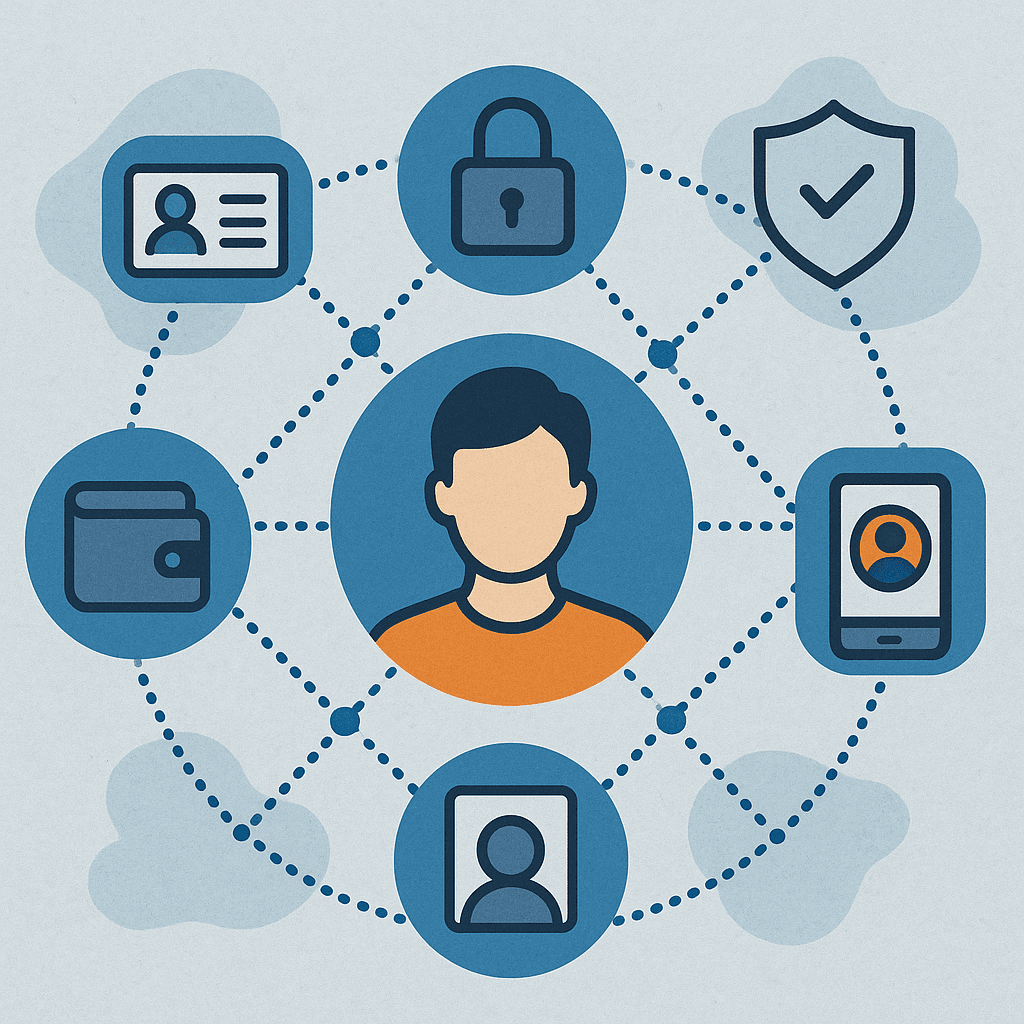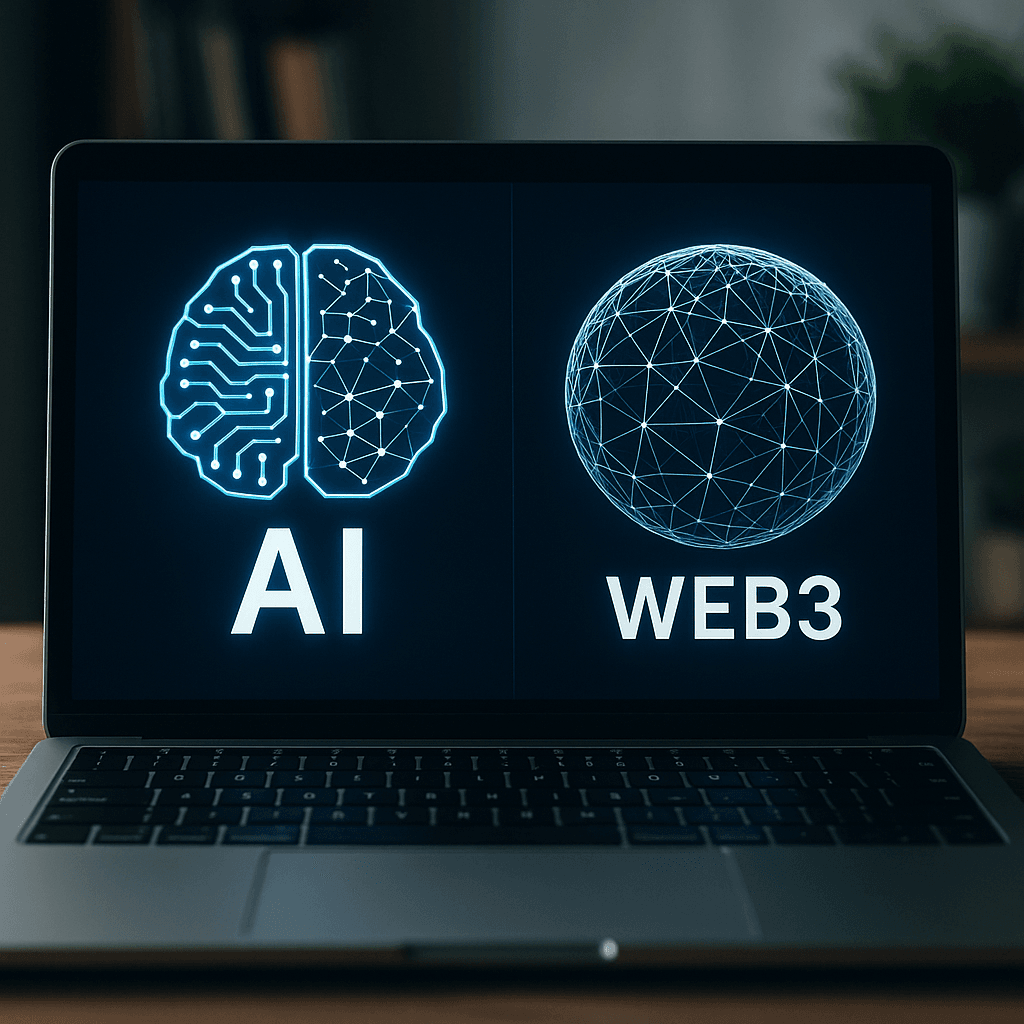Every time you log into a website, apply for a loan, or verify your age online, you’re trusting a centralized authority to manage your personal information. But what if you could control your own digital identity without relying on corporations or governments to validate who you are? This is the promise of decentralized identity (DID), a revolutionary approach to online verification that’s gaining momentum as privacy concerns and data breaches continue to mount.
Decentralized identity represents a fundamental shift in how we think about digital credentials. Instead of companies like Google, Facebook, or government agencies holding the keys to your identity, DID technology puts you in the driver’s seat, giving you unprecedented control over your personal data.
Understanding How Decentralized Identity Works
At its core, decentralized identity operates on blockchain technology and cryptographic principles. Rather than storing your identity information in a central database vulnerable to hackers, DID systems create a unique digital identifier that you own and control through a digital wallet on your device.
Here’s how the process typically unfolds: You generate a decentralized identifier, which functions like a digital fingerprint unique to you. This identifier lives on a blockchain or distributed ledger, making it tamper-proof and verifiable without requiring a central authority. When you need to prove something about yourself—your age, address, or credentials—you share only the specific information requested, nothing more.
The technology relies on verifiable credentials, which are digital attestations issued by trusted entities like universities, employers, or government bodies. For instance, your university might issue a verifiable credential confirming your degree. You store this in your digital wallet, and when a potential employer requests proof of education, you share just that credential without exposing your entire academic history or personal details.
What makes this system powerful is the concept of selective disclosure. Unlike traditional systems where you must share complete documents, DID allows you to prove specific claims without revealing unnecessary information. Need to confirm you’re over 21? You can do so without showing your exact birthdate, address, or driver’s license number.
Why Decentralized Identity Matters Now
The timing for decentralized identity couldn’t be more critical. Data breaches have become alarmingly common, with billions of personal records compromised in recent years. Every centralized database represents a honeypot for cybercriminals—a single point of failure that puts everyone’s information at risk.
Beyond security, decentralized identity addresses pressing issues of digital inclusion. Approximately 850 million people worldwide lack official identification, excluding them from banking, healthcare, and education services. DID technology enables individuals to build portable, verifiable identities without depending on government-issued documents, opening doors for marginalized populations.
Privacy advocates are championing decentralized identity as a solution to surveillance capitalism. Today’s internet economy runs on data extraction, with companies monitoring your behavior to build detailed profiles for advertisers. DID systems flip this model, ensuring you decide what information to share and with whom. Your data becomes truly yours, not a commodity for tech giants to exploit.
The technology also promises to streamline bureaucratic processes. Imagine applying for a mortgage without submitting countless documents to multiple parties, or moving to a new country with your credentials immediately verifiable. Decentralized identity could eliminate redundant verification processes that waste time and resources.
The Road Ahead
While decentralized identity holds tremendous promise, widespread adoption faces hurdles. Regulatory frameworks must evolve to recognize DID systems legally. User experience needs refinement—the average person shouldn’t need to understand blockchain to manage their identity. Interoperability standards are essential so different DID systems can communicate seamlessly.
Despite these challenges, momentum is building. The European Union is developing digital identity wallets for citizens. Major corporations are piloting DID solutions for employee credentials and customer verification. As awareness grows about data privacy and the limitations of centralized systems, decentralized identity is positioned to reshape how we prove who we are online.
The question isn’t whether decentralized identity will transform digital interactions, but how quickly we’ll embrace a future where individuals, not institutions, control the most valuable asset in the digital age: identity itself.




